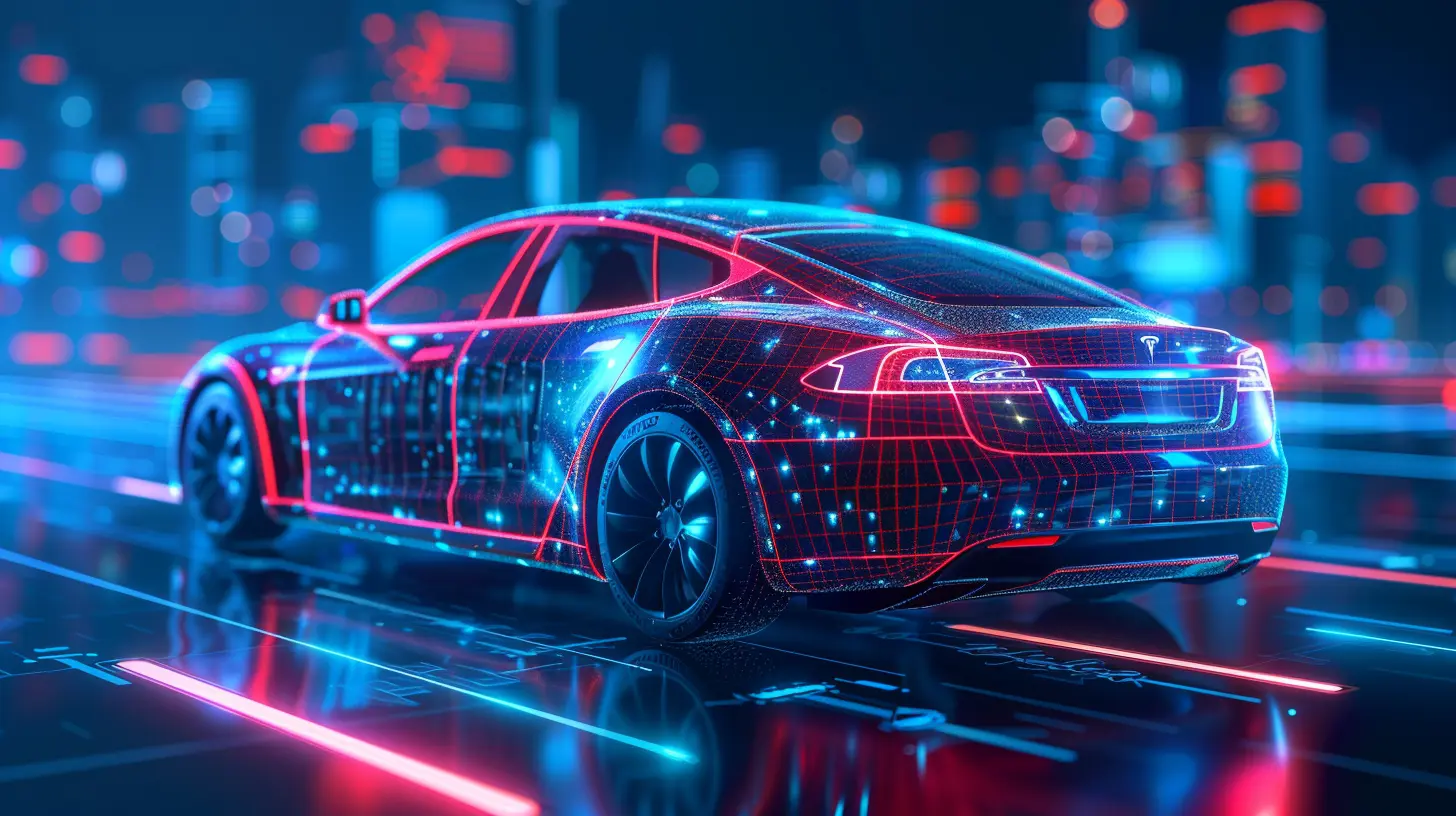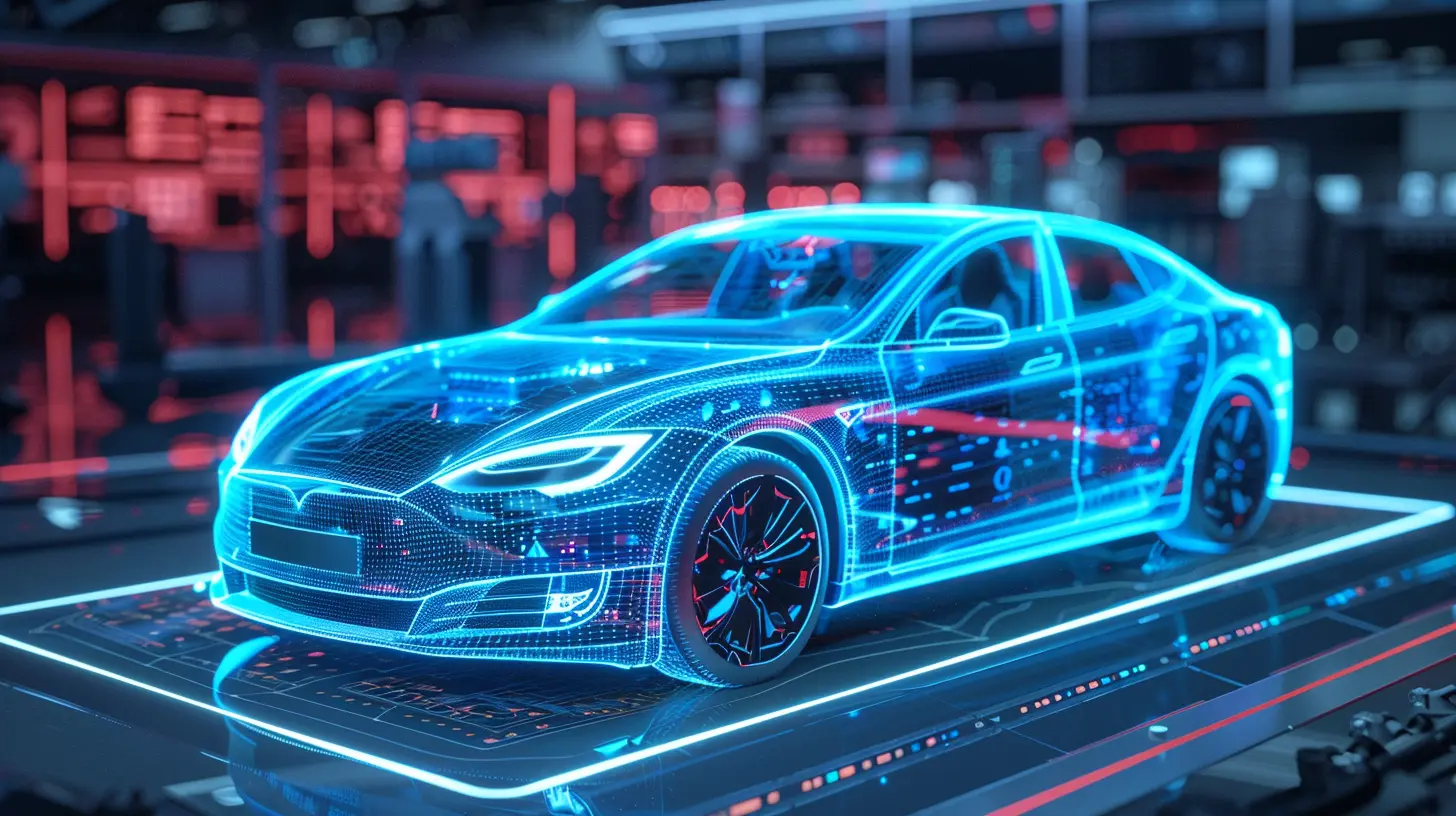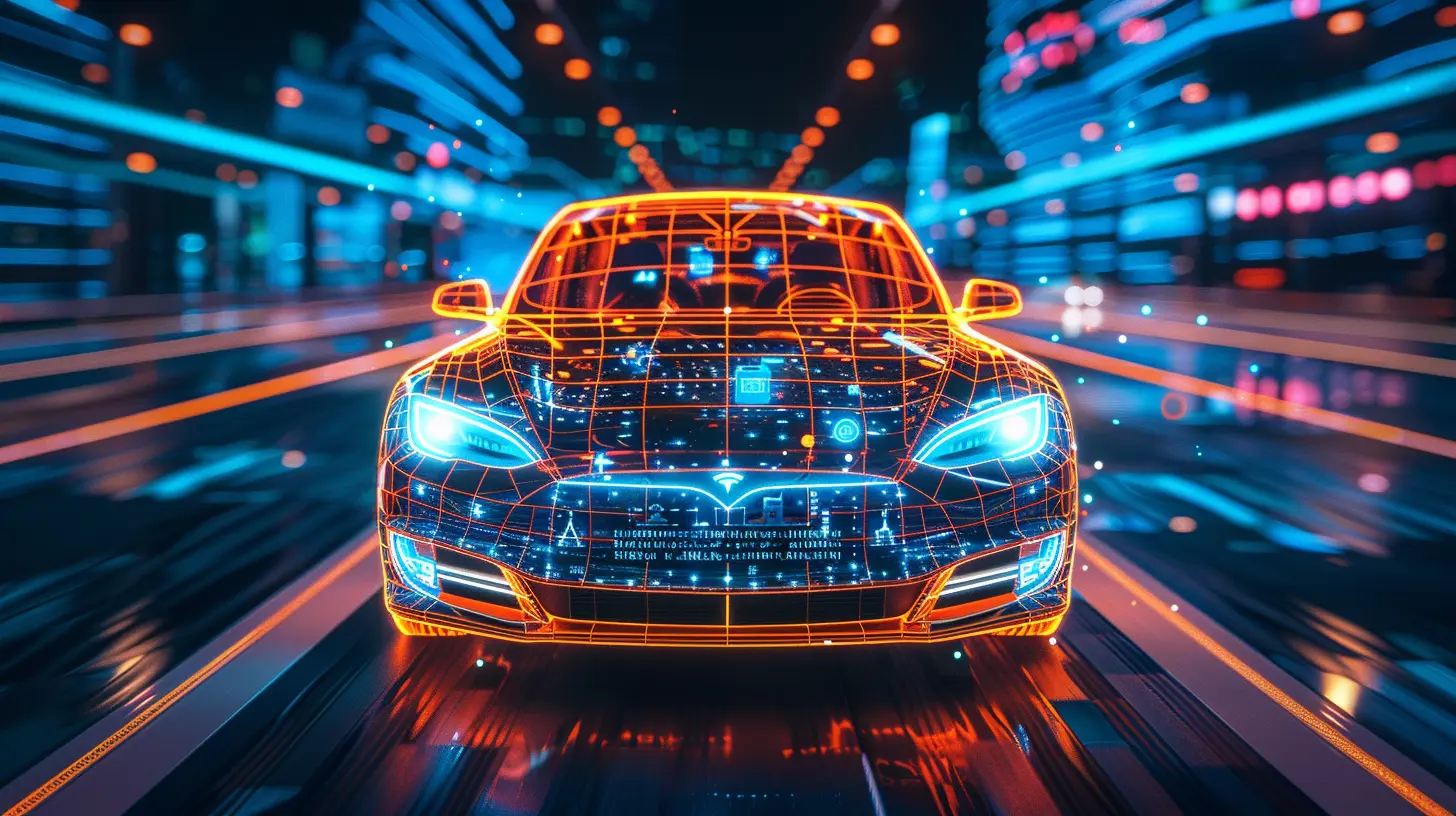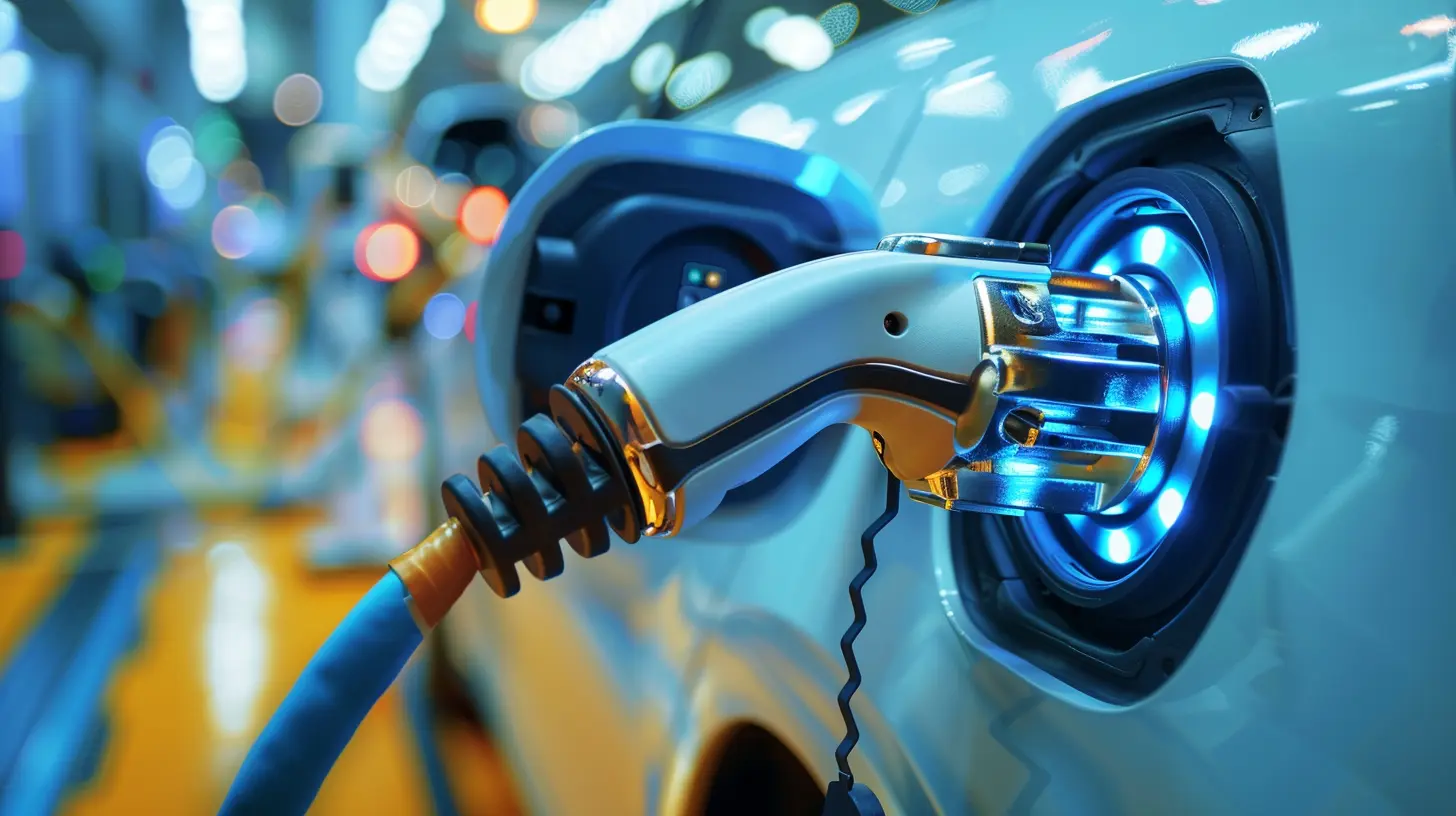The Role of Artificial Intelligence in Electric Vehicle Development
27 September 2025
Electric vehicles (EVs) are shaping the future of transportation, and artificial intelligence (AI) is playing a massive role in driving this transformation forward. From battery optimization to autonomous driving, AI is revolutionizing the entire EV industry. But how exactly is AI making EVs smarter, safer, and more efficient? Let’s dive deep into the fascinating synergy between AI and electric vehicles.

The Growing Influence of AI in the EV Industry
AI isn’t just a buzzword anymore—it’s a game-changer in electric vehicle development. Companies like Tesla, Rivian, and even traditional automakers like Ford and GM are leveraging AI to enhance battery performance, optimize energy consumption, and create self-driving capabilities.With AI, EVs are not just about reducing carbon footprints; they're about making transportation more intelligent and sustainable. Whether it’s through predictive maintenance, traffic pattern analysis, or energy-efficient driving, AI is pushing the boundaries of what’s possible in the EV landscape. 
AI-Powered Battery Management
One of the biggest challenges in the EV industry is battery performance. Traditional lithium-ion batteries degrade over time, limiting the range and efficiency of an EV. This is where AI steps in.Battery Optimization and Longevity
AI-driven battery management systems (BMS) analyze real-time data from sensors to optimize battery charging and discharging cycles. Smart algorithms predict battery aging trends, ensuring batteries last longer with minimal degradation.For example, Tesla's AI-powered BMS adjusts energy distribution dynamically, enhancing battery efficiency and extending lifespan. By analyzing usage patterns, AI helps prevent overcharging and deep discharges, two major factors that degrade battery performance.
Faster and Smarter Charging
AI also makes EV charging smarter. Traditional charging stations follow a fixed charging pattern, but AI-driven systems adjust charging speeds based on factors like battery health, temperature, and available grid power.Companies like ChargePoint and EVgo use AI to optimize charging patterns, reducing strain on the electrical grid while ensuring quicker and safer charging. With AI, EVs can even predict the best time to charge, minimizing electricity costs by leveraging off-peak hours. 
Autonomous Driving: AI Takes the Wheel
Self-driving technology is one of the most exciting aspects of AI in EV development. Companies like Tesla, Waymo, and Nvidia are constantly refining their AI-driven autonomous systems to make EVs safer and smarter.How AI Drives Autonomy
Autonomous vehicles rely on AI-powered sensors, cameras, and LiDAR to process vast amounts of data. These systems create real-time maps of the vehicle’s surroundings, helping it navigate without human intervention.Deep learning algorithms enable self-driving EVs to recognize objects, predict pedestrian behavior, and even anticipate potential hazards. Think of it as having a virtual co-pilot that never gets tired or distracted.
The Role of Machine Learning
Machine learning plays a huge role in training self-driving AI. These systems continuously learn from millions of miles of driving data, improving their ability to handle complex road scenarios.For example, Tesla’s Full Self-Driving (FSD) system uses neural networks to analyze real-world driving situations. Each time a Tesla driver engages Autopilot, the system collects data to refine its autonomous capabilities.
AI is bridging the gap between human reflexes and machine precision, pushing us closer to a future where fully driverless EVs become a reality. 
Predictive Maintenance: Preventing Breakdowns Before They Happen
Gone are the days of reactive vehicle maintenance. AI-powered predictive maintenance is transforming how EVs handle wear and tear.How AI Detects Potential Issues
AI analyzes data from EV sensors to predict potential failures before they happen. From battery health to motor efficiency, AI continuously monitors critical components and alerts drivers about potential issues.For example, AI can detect irregularities in battery temperature, signaling potential overheating risks. Instead of waiting for a breakdown, EV owners receive predictive alerts, allowing them to fix minor issues before they turn into costly repairs.
Benefits of AI in Vehicle Maintenance
- Cost Savings: Preventive maintenance reduces unexpected repair costs.- Increased Lifespan: AI optimizes vehicle health, extending the overall longevity of the EV.
- Improved Safety: Early detection of faults prevents sudden breakdowns, ensuring a safer driving experience.
AI in Energy Management and Smart Grids
Electric vehicles are only as efficient as the energy infrastructure supporting them. AI is transforming energy management for EVs, making charging and power distribution more intelligent.AI-Driven Smart Grids
AI-powered smart grids optimize energy distribution by balancing supply and demand in real time. These grids reduce the strain on power networks by ensuring EVs charge only when sufficient electricity is available.For instance, AI-based energy management platforms can adjust the power flow to charging stations based on real-time usage data. This prevents grid overloads and ensures a stable electricity supply.
Vehicle-to-Grid (V2G) Technology
AI is also enabling V2G technology, where EVs can feed excess power back into the grid. This turns EVs into mobile energy storage units, helping stabilize electricity demand.Imagine your EV acting as a backup power source for your home during a blackout—that’s the kind of future AI is helping to create.
AI in EV Manufacturing and Design
AI plays a crucial role not just in EV operation but also in manufacturing and design.Streamlining Production with AI
Automakers are using AI-powered robotics for precise assembly and quality control. AI-driven predictive analytics help manufacturers optimize supply chains, reducing production costs and minimizing delays.Enhanced Vehicle Design
AI is also improving EV aerodynamics, weight distribution, and efficiency through advanced simulations. Engineers use AI-powered design software to create lightweight yet durable EVs, improving performance while maintaining safety standards.Challenges and Ethical Considerations
While AI is revolutionizing the EV industry, it’s not without its challenges.Data Privacy and Security
AI-driven EVs collect massive amounts of data, raising concerns about privacy and cybersecurity. Automakers must ensure that sensitive data is protected from hacking threats.Regulatory and Legal Hurdles
Self-driving EVs face legal challenges and regulatory roadblocks. Governments worldwide are still working on laws to govern AI-driven vehicles, slowing down widespread adoption.High Development Costs
AI integration isn't cheap. Developing AI-powered EV systems requires significant investment, making these vehicles more expensive for consumers in the short term.The Future of AI in Electric Vehicles
AI and EV technology are evolving at a breakneck pace. In the coming years, we can expect even more advancements:- Fully autonomous electric fleets: AI-driven robotaxis could redefine urban transportation.
- Hyper-efficient AI batteries: Next-gen AI-powered battery models may significantly reduce charging times.
- Improved human-AI interaction: AI voice assistants and smart dashboards will enhance the user experience.
The journey toward smarter, greener transportation is just beginning, and AI is at the heart of it all.
Final Thoughts
Artificial intelligence is the driving force behind the electric vehicle revolution. From smarter energy management to self-driving capabilities, AI is making EVs more efficient, reliable, and user-friendly.While challenges remain, the potential of AI in the EV industry is limitless. As technology continues to evolve, we’re heading toward a future where AI-powered electric cars become the norm rather than the exception.
So, the next time you see an EV on the road, remember—it’s not just electric; it’s intelligent.
all images in this post were generated using AI tools
Category:
Electric VehiclesAuthor:

Ugo Coleman
Discussion
rate this article
1 comments
Lennox McGeehan
This article effectively highlights the transformative impact of artificial intelligence on electric vehicle development. By streamlining design processes, enhancing battery efficiency, and optimizing autonomous driving capabilities, AI is not only accelerating innovation but also paving the way for a sustainable automotive future. Great insights!
September 27, 2025 at 3:55 AM

Ugo Coleman
Thank you for your thoughtful feedback! I'm glad you found the article insightful and highlighted the key ways AI is shaping the future of electric vehicles.


